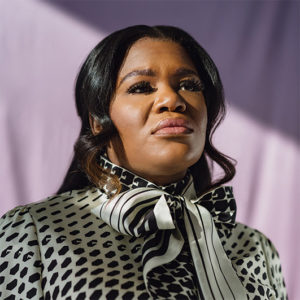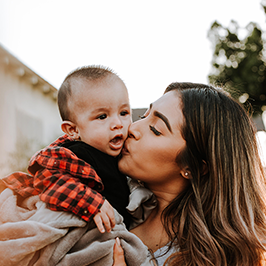Recently, Missouri Congresswoman Cori Bush (D) shared her abortion experience before a congressional committee. She also conducted interviews with Vanity Fair and Vogue.
Bush is known for her unvarnished support of abortion and activist style but like so many other women, her words revealed, doubt, pain, and questions regarding Bush’s choice to end the life of her baby.

When Vanity Fair’s Abigail Tracy sat down with Bush to talk about her abortion, she noted the Congresswoman’s “uncharacteristic fragility.” Bush stated that the abortion “was the beginning of a very, very dark period…That was the darkest period of my life.”
At one point she broke down crying.
Bush also described how white girls at the abortion center that day were offered alternatives to abortion, when she was not. “I feel like I wasn’t given an opportunity to make a decision.”
Bush told Emma Specter, with Vogue, “I’m trying not to cry through this whole interview!”
And she worried that her message was being misconstrued. Bush wondered out loud how beneficial her celebrated choice actually was. “The question really was, how did having that abortion access help me move on with my life?”
The theme of racism in the abortion industry was also prevalent in the Vogue interview. Bush said, “I was treated differently on purpose, and it was very blatant…I felt belittled.”
 Research by Life Issues Institute documents widespread systemic racism within Planned Parenthood. 78% of their abortion centers are in or near neighborhoods of women of color.
Research by Life Issues Institute documents widespread systemic racism within Planned Parenthood. 78% of their abortion centers are in or near neighborhoods of women of color.
Congresswoman Bush is far from alone when it comes to doubting and questioning her abortion experience.
The organization Shout Your Abortion solicits positive abortion stories from American women. But, as has been proven in the past, when these women bare their souls, the bad along with the positive bubbles up to the surface.
The attempts to destigmatize abortion by touting positive personal experiences have been going on for decades with less-than-promising results. Here are some of the quotes gleaned from their website.
“I had a pill abortion and later on was diagnosed with depression (post-abortion). The father and I decided to break up and later on got back together but things were never the same again, as I am still grieving, and he isn’t.” Lorie
“I went through a difficult thing that damaged me mentally… I had the strength to get through it without it completely destroying me.” Anonymous
“I was soon going to not be pregnant, but I was happy to be pregnant. I cried a lot in the days leading up to my appointment.” Emily
“I regret my abortion. There, I said it. I wish I hadn’t been afraid of the way my relationship would change with the father of my tiny little clump of cells and had instead stood up for what I knew I wanted to do.” Anonymous
“When I was about to go under, I was sobbing uncontrollably, and the Dr. stopped and asked, “Do you want to do this?” Joyelle
“It was the hardest thing I have ever done. My heart is broken. I think about it every day. It is something that will stick with me, something I will pray for all the time.” Stephany
 Behind the bravado and interspersed among the political slogans, lies the truth that abortion is harming women and violently killing their babies. There’s not enough positive spin in the English language that can negate this reality.
Behind the bravado and interspersed among the political slogans, lies the truth that abortion is harming women and violently killing their babies. There’s not enough positive spin in the English language that can negate this reality.
Women deserve better.
Helping women. Saving babies,
Leave a Reply